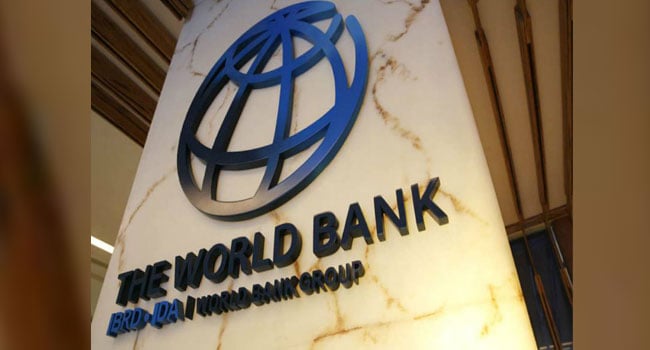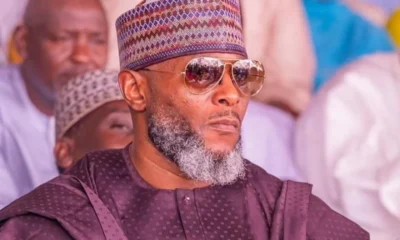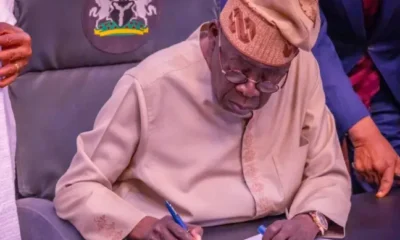News
Nigeria’s W’Bank loans rise to $18.5bn, highest in Africa

Nigeria’s stock of World Bank International Development Association loans has risen to $18.5bn, making it the largest IDA borrower in Africa and the third-biggest in the world.
Fresh data from the IDA’s unaudited financial statements for the third quarter of 2025, confirmed that the country has maintained the ranking it first attained in 2024, when it climbed to third place after overtaking India.
The country was the fourth-largest borrower in 2023.
According to the report, Nigeria’s exposure increased from $17.1bn in September 2024 to $18.5bn in September 2025, representing a rise of $1.4bn or 8.2 per cent.
The increase reflects the country’s heavier reliance on concessional financing to plug infrastructure gaps, stabilise its reform programme and support social spending amid volatile oil earnings.
Bangladesh remains IDA’s biggest borrower, with exposures rising from $21bn in 2024 to $22.7bn in 2025.
Pakistan follows with $19.3bn, up from $18.5bn. With $18.5bn, Nigeria ranks next and remains the largest IDA debtor on the African continent.
Ethiopia ($14.1bn), Tanzania ($13.8bn), India ($13.7bn), Kenya ($13bn), Viet Nam ($11.4bn), Ghana ($7.5bn) and Côte d’Ivoire ($6.3bn) complete the top-ten list.
The figures show that Nigeria, Ethiopia, Tanzania, Kenya and Ghana remain IDA’s largest African borrowers, but Nigeria sits far ahead.
The 2024 data had placed Bangladesh at $21bn, Pakistan at $18.5bn, Nigeria at $17.1bn, and India at $15.9bn.
Others included Ethiopia ($13.1bn), Kenya ($12.4bn), Tanzania ($12.2bn), Viet Nam ($12.2bn), Ghana ($7bn) and Uganda ($5bn). Uganda dropped out of the top ten in 2025, replaced by Côte d’Ivoire.
IDA said the top 10 countries accounted for 60 per cent of its total exposure as of September 2025.
The report read, “As of September 30, 2025, the ten countries with the highest exposures accounted for 60 per cent of IDA’s total exposure.”
The institution reported $228.9bn in loans outstanding and $224.2bn in net loans outstanding at the end of the quarter, up from $223.2bn in June. The increase was driven mainly by net disbursements.
Total assets stood at $288.6bn, while equity remained stable at $204.2bn.
The report also showed that IDA is operating under its 21st replenishment cycle, known as IDA21, which will provide up to $100bn in financing from July 2025 to June 2028. The envelope includes up to $23.7bn in member contributions alongside financing from capital markets, loan repayments and transfers within the World Bank Group.
The IDA is the concessional lending arm of the World Bank Group, offering low-interest or interest-free loans and grants to the world’s poorest countries.
Debt owed to the IDA typically comes with long maturities and generous grace periods, but the growing balances highlight both the scale of Nigeria’s financing needs and the degree of its reliance on concessional funding.
There is also the International Bank for Reconstruction and Development, which is another lending arm of the World Bank for middle-income and creditworthy lower-income countries, raising funds on global capital markets through its AAA rating and providing sovereign loans, guarantees, and advisory support aimed at reducing poverty and promoting sustainable development.
Nigeria’s continued presence near the top of the IDA debtor table reflects its persistent financing gap for development spending, particularly in infrastructure, energy access, and poverty reduction programmes.
While IDA loans offer more favourable terms than market borrowing, the steady accumulation of such debt adds to Nigeria’s overall public debt burden, raising questions about debt sustainability.
As of June 30, 2025, Nigeria’s external debt stood at $46.98bn, according to the Debt Management Office.
Of this amount, the World Bank Group accounted for $19.39bn—comprising $18.04bn from the International Development Association and $1.35bn from the International Bank for Reconstruction and Development.
This means the World Bank holds 41.3 per cent of the total, reinforcing its outsized role in funding Nigeria’s development programmes.
Economist and CEO of the Centre for the Promotion of Private Enterprise, Dr Muda Yusuf, earlier said the rising World Bank commitments to Nigeria should be examined within the context of the country’s Medium-Term Expenditure Framework and annual budgets, which already provide for both domestic and foreign borrowing.
He noted that deficit financing is a common feature of budgets worldwide and is not inherently wrong, as it allows governments to make critical investments without waiting to generate all the required revenue upfront.
However, he stressed that borrowing should always be backed by sound economic reasoning and clear development priorities. Yusuf emphasised that the key issue is debt sustainability, which depends primarily on the country’s revenue capacity to service its obligations.
Without strong cash flow to meet repayment schedules, he warned, Nigeria risks falling into a vicious cycle of borrowing to service existing loans, thereby perpetuating fiscal vulnerability.
He said it is essential that projects funded by loans directly support the economy’s capacity to repay. According to him, Nigeria should be cautious about foreign loans due to the exchange-rate risks they pose, noting that domestic debt is generally easier to manage.
Excessive foreign borrowing, he warned, could put pressure on the country’s reserves and further weaken the exchange rate. He stressed that a disciplined approach to debt sustainability will be crucial for Nigeria to avoid long-term fiscal distress.(Punch)
-

 Politics4 hours ago
Politics4 hours agoAtiku’s son resigns from Fintiri’s cabinet
-

 News3 hours ago
News3 hours agoMajor, 3 Soldiers, Hunter Killed In Borno
-

 News3 hours ago
News3 hours agoUmrah Suffers Setback As Airlines Suspend Flights To S/Arabia
-

 News18 hours ago
News18 hours agoJustice Tsoho To Appear Before CCB Over Alleged Non-Declaration Of Assets
-

 News4 hours ago
News4 hours agoRevised Executive Order: FG adjusts oil revenue remittance framework
-

 News4 hours ago
News4 hours agoPolice Council Confirms Disu As IG, To Be Sworn In Wednesday
-

 Politics3 hours ago
Politics3 hours agoDSS arrests social media user who ‘threatened’ Peter Obi after Edo attack
-

 Business3 hours ago
Business3 hours agoPrivate jet flight from Riyadh to Europe now cost N479m as elites flee Middle East tensions – Report


















